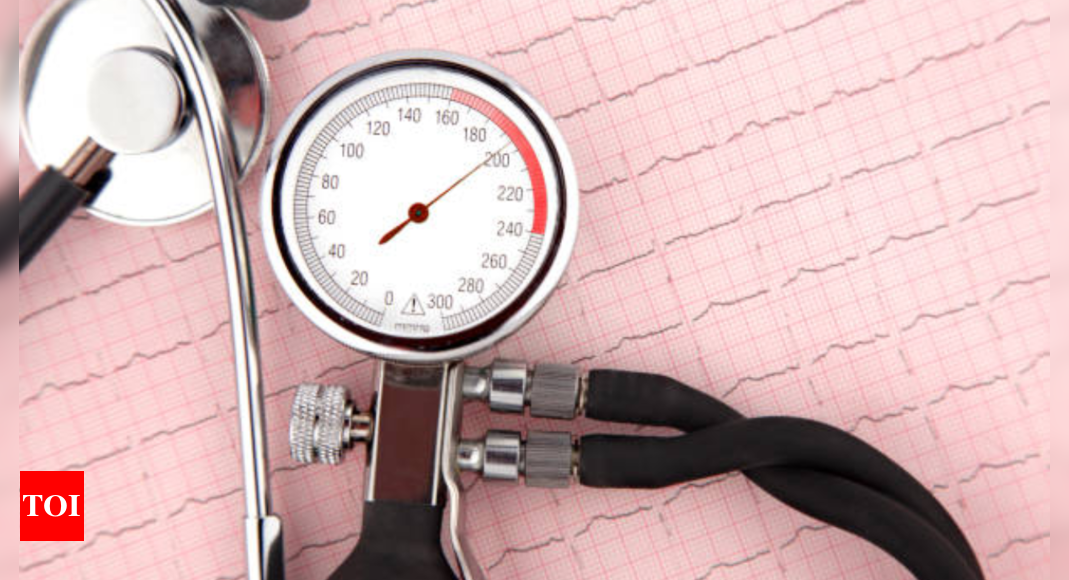High blood sugar will make complications from diabetes much worse. Complications from diabetes are higher risks to heart, kidneys, eyes, and your general health in individuals with both high blood pressure and diabetes. Let’s discuss some of the reasons why managing blood pressure becomes important for people with diabetes and practical steps one could take to keep it under control.
1. Why is blood pressure control important in diabetes? Blood pressure, also known as hypertension, means your heart has to work much harder to pump blood throughout your body. The stress of this extra effort can damage your blood vessels over time, leading to heart disease and stroke, among countless other detrimental potential complications. In a person with diabetes, the risk is even more significant because their blood vessels and circulation are already diseased from the diabetes.
The havoc diabetes high blood sugar wreaks on blood vessels: they become narrower, stiffer. Damaged vessels cause your blood pressure to naturally rise; this can start a vicious cycle that spirals badly out of control: the faulty vessels can cause the blood pressure to rise, which can damage the vessels even further. Controlling blood pressure can break this cycle and help prevent damage to your organs.
Protect your heart and blood vessels:
Those who have diabetes and high blood pressure will have a greater predisposition to suffering heart disease complications. High blood pressure accelerates the risk of heart attack and stroke. Both of these complications occur in a diabetic patient, but controlling your blood pressure will ease the work upon the heart, thus reducing your risks from these life-threatening events.
Blood pressure is well maintained to ensure normal blood circulation. Blood vessels in diabetes are already predisposed to blockages due to excessive sugar levels in blood. If blood pressure is too high, it increases the force against vessel walls that tends to facilitate blockages. Healthy blood pressure would have a decrease chance of clotting or causing blockages in blood vessels that would ensure smooth blood flow to vital organs.
Prevention of kidney damage
High blood pressure is one of the primary causes of kidney disease, specifically for diabetics. The kidneys are the organs of filtration that clean your blood by removing the waste; however, uncontrolled high sugar can damage the minute blood vessels inside your kidneys, thus compromising their functioning. High blood pressure does not improve this condition at all, as it further stresses these minute vessels. This can result in faster deterioration of the kidneys and eventually cause kidney failure.
Maintaining healthy blood pressure helps take care of your kidneys, and making sure it doesn’t go too high can help it filter waste more easily. Potentially, it may even delay or prevent one of the most common complications of diabetes: kidney disease.
Preventing damage to your eyes
Control of blood pressure is also crucial for your eyes. High blood pressure damages small vessels in the eyes through causing retinopathy. The fact that diabetes itself threatens a patient with retinopathy is not only because of its intrinsic disease progression, but also because of the potential severe damage that high blood sugar does to the vessels, which might eventually cause an impairment of vision. High blood pressure brings along even further risks resulting from increased stress on the blood vessels of the retina, which is just the part of the eye responsible for providing vision.
Manage your blood pressure to preserve your vision by keeping these vessels as healthy as possible. Also, regularly undergoing eye examinations is a must in order to detect the early signs of damage so prompt treatment may be done to prevent the loss of precious vision.
Less risk of nerve damage
Diabetes causes damage to nerves, known as neuropathy, because of the irregularity in the flow of blood that impacts on the nerves due to excess sugar in the blood. Overpressure aggravates this condition as it reduces blood flow to nerves, and so one big issue is related to legs and feet. This type of damage can result in the feeling of numbness, pain, or a tingling sensation in hands and legs; inability to feel any injury or infection, which may further be grave if undetected.
Controlling blood pressure will improve blood flow to your nerves, which may help prevent or delay nerve damage and lessen symptoms such as tingling or numbness.
Practical tips to control blood pressure in diabetes
• Eat a Heart-Healthy Diet: Prioritise the intake of fruits, vegetables, whole grains, lean proteins, and healthy fats, including olive oil and nuts. Limit processed foods, which are usually high in salt; Sodium cause elevated blood pressure.
• Be Physically Active: Exercising, such as walking, swimming, or cycling, helps in lowering blood pressure and improves control over blood sugar. You should perform at least 30 minutes of moderate exercise most days.
• Achieve Healthy Weight: Small weight loss has proven to lower blood pressure. In addition, having a healthy weight can make it easier to manage blood sugar, thus helping reduce complications from diabetes.
• Restrict Alcohol and Quit Smoking: Alcohol raises blood pressure, so drink in moderation. Smoking also damages the blood vessel and elevates blood pressure, so quitting can be hugely beneficial for the short term and long term.
• Follow Medications Prescribed: Most people with diabetes need medication to control both blood sugar and blood pressure. Always take your prescribed medicines and discuss side effects with your doctor.
• Monitor Blood Pressure at Home: Monitor the trend of your blood pressure by doing blood pressure monitoring from home. With regular home measurements, you will most likely begin to notice when your blood pressure does not seem quite right and can report this to your doctor. You will then need to adjust your lifestyle or medications, as needed, again with your doctor’s advice.
Collaboration with your healthcare provider
The largest resource that you have for managing blood pressure in diabetes is your physician. They can work to create a plan with lifestyle changes, medications, and monitoring. Be sure to keep all scheduled appointments so your doctor can assess how well you’re doing managing your blood pressure and make any needed changes.
Most people with diabetes and hypertension now lead apparently normal life patterns; many patients remain asymptomatic and progress freely due to regular follow-ups, such as screenings of kidney function, cholesterol, and eye health tests, which can identify possible complications early. Many patients control blood pressure in this manner because you can work very closely with your healthcare provider to have adjustments made to maintain healthy ranges for both your blood pressure and blood sugar.
Blood pressure control in the case of diabetes is crucial for avoiding complications in the heart, kidneys, eyes, and nerves. Since a disease condition like high blood pressure only makes things worse, such caused by diabetes leads to damage of the vessel, which complements other factors that lead to systemic damage. Keeping your blood pressure under control will help you reduce the potential for complications as a result of the healthy diet, regular exercising, controlling weight, and medications under the guidance of doctors. In the long run, by taking care of your blood vessels, you help promote your long-term health and make living well with diabetes much easier.
(Author: Dr. Varun Suryadevara, Endocrinologist, MBBS MD Internal Medicine DM Endocrinology, Apollo Hospitals, Bangalore)
Blood Pressure: Why is blood pressure control crucial for people with diabetes? |

Visited 1 times, 1 visit(s) today

